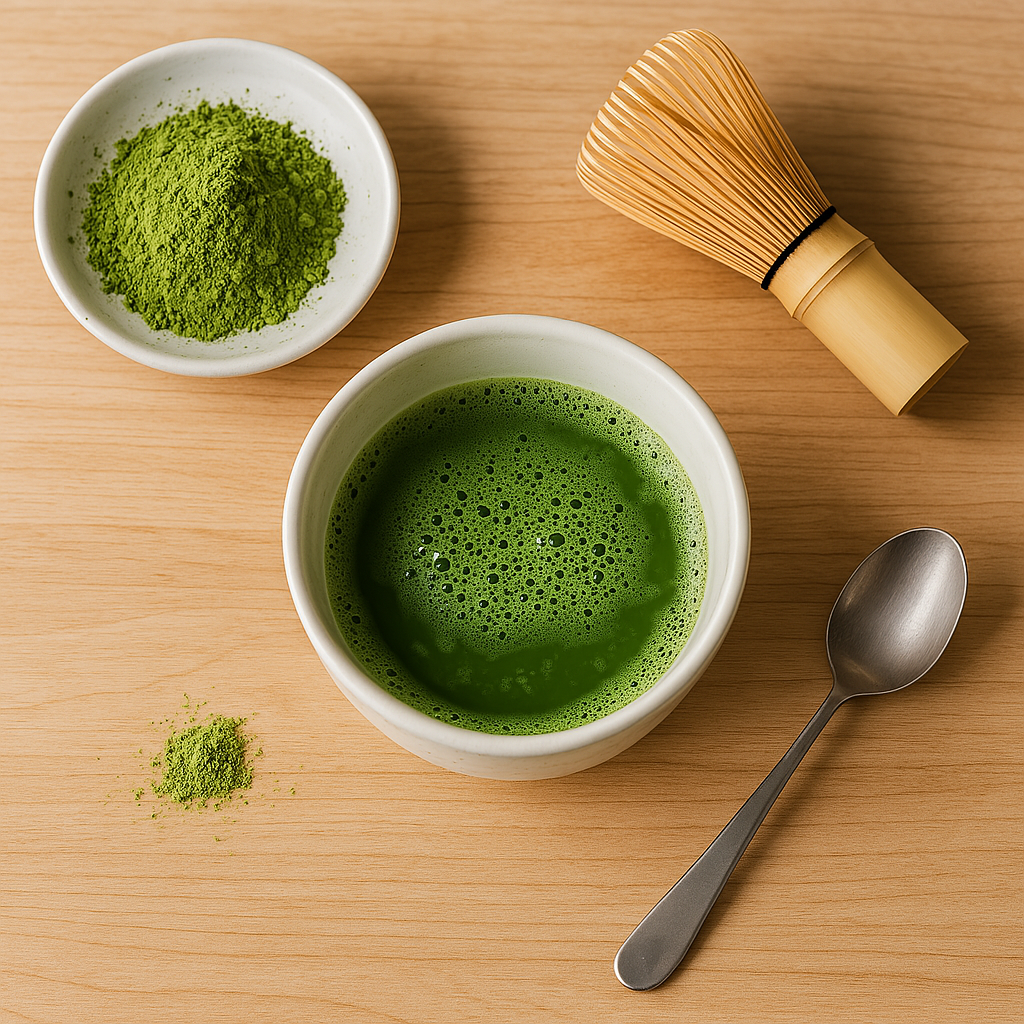
Why does matcha sometimes taste bitter, and how can this be mitigated?
Share
If you’ve ever taken a sip of matcha and thought, “Hmm… this is a little more bitter than I expected,” you’re not alone. While high-quality matcha is known for its smooth, umami-rich flavor with subtle sweetness, bitterness can sometimes sneak in - especially if a few things go wrong in the preparation or if the matcha isn’t up to par.
So what causes matcha to taste bitter? And how can you make sure your next cup is as smooth and delicious as it should be?
First and foremost, the quality of your matcha matters. Lower-grade or culinary-grade matcha is often made from older tea leaves that have more tannins, which naturally taste more bitter. If the powder is dull in color (more olive than bright green), that’s a good sign it might not taste as smooth. For a clean, mellow flavor, ceremonial grade matcha is the way to go.
Another common culprit is water temperature. Boiling water (100°C / 212°F) is too harsh for delicate matcha powder and can easily burn it, resulting in a bitter or astringent taste. Instead, aim for hot water that’s around 75–80°C (170–175°F). If you don’t have a thermometer, just boil your water and let it sit for a minute or two before pouring.
Bitterness can also come from using too much matcha. A little goes a long way - start with about ½ teaspoon (1 gram) and adjust from there. More powder means a stronger flavor, which can quickly become overpowering if you're new to matcha.
To round out the taste, consider pairing your matcha with something creamy or lightly sweet. Many beginners enjoy their matcha with a bit of oat milk or almond milk, or a touch of honey or maple syrup. These additions can soften the bitterness without masking the unique flavor.
And finally, make sure you’re storing your matcha properly. Exposure to air, light, and heat can degrade the flavor and bring out more bitterness over time. Keep it sealed in an airtight, opaque container in a cool place (like your fridge) to keep it fresh.
Bitterness doesn’t have to be part of the matcha experience. With the right quality, preparation, and care - and by following tips like those in our blog post on how to store matcha - every cup can be a perfectly balanced, energizing treat.. With the right quality, preparation, and care, every cup can be a perfectly balanced, energizing treat.
